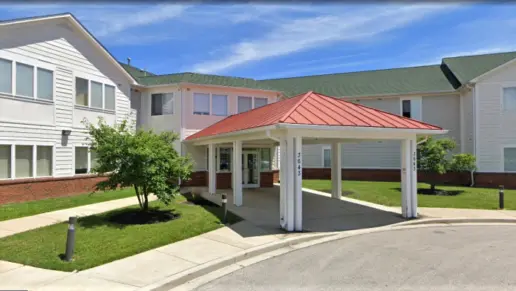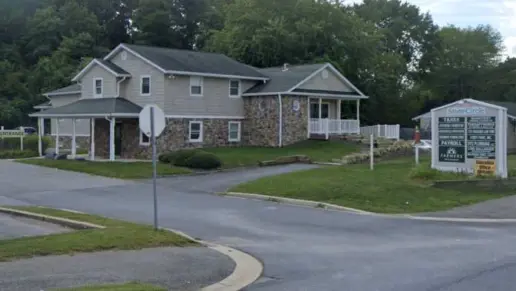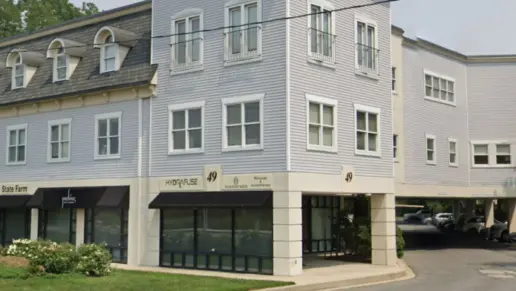As a parent of a daughter who stayed at the retreat for 19 days, I cannot recommend this residence program in good conscience. We were assured by many different staff that this was the right place for treatment for our daughter, even after we expressed doubts. Think very car ...
About Sheppard Pratt – The Retreat
Many past patients praise Sheppard Pratt — The Retreat, located in Baltimore, Maryland. Former clients often express gratitude to the center's nurses, mental health workers, doctors, therapists and addiction treatment specialists. The center specializes in treating people with co-occurring mental health conditions and addiction problems.
Their comprehensive addiction treatment program also offers opioid addiction treatment. The opioid treatment program has been specially created to increase the level of care provided to the community in Baltimore County. As one of the nation’s leading healthcare providers, Sheppard Pratt – The Retreat is uniquely equipped to provide effective and comprehensive care to individuals battling mental health and addiction treatment, including opioid addiction.
If you enroll in the opioid addiction treatment program, you can expect to receive a ‘hub and spoke’ treatment approach unique to the center. This evidence based opioid addiction treatment approach provides urgent assessments, integrated mental health and addiction services, including an intensive outpatient program and medication assisted treatment (MAT).
MAT is particularly helpful to those who need counseling and medical monitoring in a safe environment. You will be dosed with FDA approved medications to assist with recovery. The medications you can expect to receive include methadone or Suboxone. Which you take will depend on your specific needs.
You can also expect case management services. These services are designed to help you survive and thrive on your road to sobriety. Case management can include assistance accessing transport to get treatment, connections to wraparound employment services and help finding housing. Peer support is also available if you want assistance from like-minded individuals who have traveled a similar recovery path.
Latest Reviews
Rehab Score
Gallery
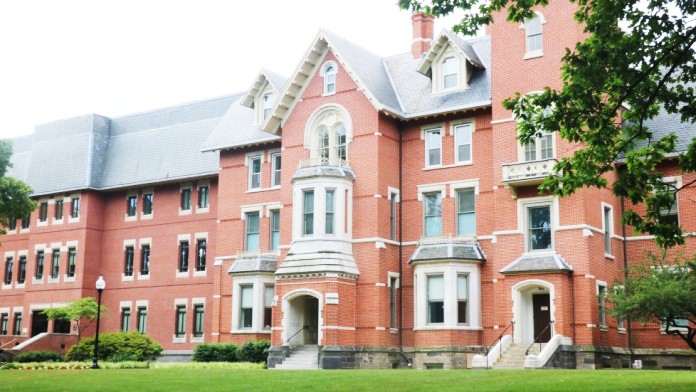
Location
Accepted Insurance
Other Forms of Payment
Private insurance refers to any kind of healthcare coverage that isn't from the state or federal government. This includes individual and family plans offered by an employer or purchased from the Insurance Marketplace. Every plan will have different requirements and out of pocket costs so be sure to get the full details before you start treatment.
Self-pay involves paying for treatment out of your own pocket. You can use savings or credit, get a personal loan, or receive help from family and friends to fund your treatment. If you don't have insurance or your insurance plan doesn't cover a specific program, self-pay can help ensure you still get the care you need.
Sliding scale payments are based on a client's income and family size. The goal is to make treatment affordable to everyone. By taking these factors into account, addiction recovery care providers help ensure that your treatment does not become a financial burden to you or your family, eliminating one barrier to care.
Medicare is a federal program that provides health insurance for those 65 and older. It also serves people under 65 with chronic and disabling health challenges. To use Medicare for addiction treatment you need to find a program that accepts Medicare and is in network with your plan. Out of pocket costs and preauthorization requirements vary, so always check with your provider.
Medicaid is a state based program that helps lower-income individuals and families pay for healthcare. Medicaid covers addiction treatment so those enrolled can use their coverage to pay for rehab. When a program accepts Medicaid the client often pays very little or nothing out of their own pocket.
Addiction Treatments
Levels of Care
Treatments
The goal of treatment for alcoholism is abstinence. Those with poor social support, poor motivation, or psychiatric disorders tend to relapse within a few years of treatment. For these people, success is measured by longer periods of abstinence, reduced use of alcohol, better health, and improved social functioning. Recovery and Maintenance are usually based on 12 step programs and AA meetings.
Once a person has become addicted to a substance, drug rehab in Maryland is often necessary to overcome that addiction. These programs provide the tools individuals need to manage the physical, mental, and emotional issues involved and begin a successful recovery journey.
Because approximately 40 percent of residents treated at The Retreat experience co-occurring psychiatric and addictive disorders, they offer a fully integrated co-occurring disorders treatment track to meet their specific needs. At The Retreat, they believe that co-occurring substance use disorders and mental illness are most effectively treated, together, so their treatment team has expertise in addressing both problems at the same time, in order to provide these patients with the best opportunity to heal and recover. Through the use of integrated detoxification, individual therapy, family counseling, group therapy, psychopharmacology, and educational programming, residents with these complex disorders have access to a full array of therapies.
A combined mental health and substance abuse rehab has the staff and resources available to handle individuals with both mental health and substance abuse issues. It can be challenging to determine where a specific symptom stems from (a mental health issue or an issue related to substance abuse), so mental health and substance abuse professionals are helpful in detangling symptoms and keeping treatment on track.
Opioid rehabs specialize in supporting those recovering from opioid addiction. They treat those suffering from addiction to illegal opioids like heroin, as well as prescription drugs like oxycodone. These centers typically combine both physical as well as mental and emotional support to help stop addiction. Physical support often includes medical detox and subsequent medical support (including medication), and mental support includes in-depth therapy to address the underlying causes of addiction.
Programs


Clinical Services
Cognitive Behavioral Therapy (CBT) is a therapy modality that focuses on the relationship between one's thoughts, feelings, and behaviors. It is used to establish and allow for healthy responses to thoughts and feelings (instead of unhealthy responses, like using drugs or alcohol). CBT has been proven effective for recovering addicts of all kinds, and is used to strengthen a patient's own self-awareness and ability to self-regulate. CBT allows individuals to monitor their own emotional state, become more adept at communicating with others, and manage stress without needing to engage in substance abuse.
Whether a marriage or other committed relationship, an intimate partnership is one of the most important aspects of a person's life. Drug and alcohol addiction affects both members of a couple in deep and meaningful ways, as does rehab and recovery. Couples therapy and other couples-focused treatment programs are significant parts of exploring triggers of addiction, as well as learning how to build healthy patterns to support ongoing sobriety.
Creativity is inherently healing, and can help those in recovery express thoughts or feelings they might not otherwise be able to. Creative arts therapy can include music, poetry/writing, painting, sculpting, dance, theater, sandplay, and more. Unlike traditional art, the final product matters far less than the experience of creation and expression itself.
Dialectical Behavior Therapy (DBT) is a research-supported cognitive behavioral psychotherapy that has been found to be effective in treating symptoms and behaviors related to emotion dysregulation. The treatment uses cognitive and behavioral strategies to help residents develop more adaptive ways of thinking and more effective behaviors. The Retreat delivers DBT in accordance with the scientifically-supported model, and many staff members at The Retreat are formally trained in providing DBT.
Equine therapy, aka equine-assisted therapy (EAT), is a form of experiential therapy that involves interactions and activities with horses. It does not necessarily involve riding horses, but all activities related to horses, such as feeding, grooming, haltering and leading them. A mental health professional frequently oversees the activities (often in conjunction with a horse professional), and helps patients process their thoughts, feelings, and behavior patterns during and/or after the interaction.
Experiential therapy is a form of therapy in which clients are encouraged to surface and work through subconscious issues by engaging in real-time experiences. Experiential therapy departs from traditional talk therapy by involving the body, and having clients engage in activities, movements, and physical and emotional expression. This can involve role-play or using props (which can include other people). Experiential therapy can help people process trauma, memories, and emotion quickly, deeply, and in a lasting fashion, leading to substantial and impactful healing.
Family therapy or couples therapy is scheduled based upon individual therapy needs. At The Retreat, they appreciate that all individual behavior impacts the relationships we have with those whom we are closest to in our lives. Through sessions with the family therapist, in which the patient may participate alone or together with family members, they identify the strengths of the relational dynamic, which they can then use to address areas where adjustment may benefit all. Each family is unique, and session interventions are specifically designed to support, educate, and provide expert guidance to benefit the entire family.
Group therapy is any therapeutic work that happens in a group (not one-on-one). There are a number of different group therapy modalities, including support groups, experiential therapy, psycho-education, and more. Group therapy involves treatment as well as processing interaction between group members.
Individual therapy is a collaborative process between the doctor and the patient that works to address the specific problems and concerns of the individual, as well as to improve their quality of life. Individual therapy sessions at The Retreat take place at least three times a week. Their doctors and clinicians use this time to focus on problems and concerns specific to the individual patient, and then to help determine the proper course of therapy. During individual therapy sessions, residents meet with their primary therapist, a psychiatrist with both biomedical and psychodynamic psychotherapy experience. These experienced psychiatrists lead each treatment team and are intimately involved in the care of each patient.
Life skills trainings involve all the skills a person must have in order to function successfully in the world. These include time management, career guidance, money management, and effective communication. Truly successful addiction recovery is based on the ability to not only live substance-free, but to thrive. Life skills teaches the practical necessities of functioning in society, which sets clients up for success in life, and therefore sobriety.
Nicotine Replacement Therapy (NRT) is a way of getting nicotine into the bloodstream without smoking. It uses products that supply low doses of nicotine to help people stop smoking. The goal of therapy is to cut down on cravings for nicotine and ease the symptoms of nicotine withdrawal.
Nutrition therapy, aka medical nutrition therapy (MNT), is a way of treating physical, emotional, and medical conditions through diet. Specific dietary plans are designed by professional nutritionists or registered dietitians, and patients follow them in order to positively affect their physical and mental health.
Recreational therapy (aka therapeutic recreation) uses creative and fun activities to help with addiction recovery. Recreational therapists lead patients in entertaining and engaging activities like sports or games; art (drawing, painting, sculpture); drama, music, and dance; and/or community outings (field trips) to improve patients' physical, social, and emotional well-being.
Trauma therapy addresses traumatic incidents from a client's past that are likely affecting their present-day experience. Trauma is often one of the primary triggers and potential causes of addiction, and can stem from child sexual abuse, domestic violence, having a parent with a mental illness, losing one or both parents at a young age, teenage or adult sexual assault, or any number of other factors. The purpose of trauma therapy is to allow a patient to process trauma and move through and past it, with the help of trained and compassionate mental health professionals.
Amenities
-
Residential Setting
-
Private Rooms
Staff & Accreditations
Staff
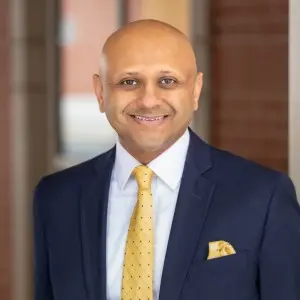
President & CEO

VP & Chief of Schools

VP & COO, Hospitals

Chief of Staff
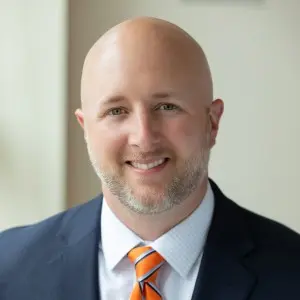
VP & CMO
Accreditations

The Joint Commission, formerly known as JCAHO, is a nonprofit organization that accredits rehab organizations and programs. Founded in 1951, the Joint Commision's mission is to improve the quality of patient care and demonstrating the quality of patient care.
Joint Commission Accreditation: Yes
Accreditation Number: 2041
Contact Information
6501 North Charles Street
Baltimore MD, 21204




